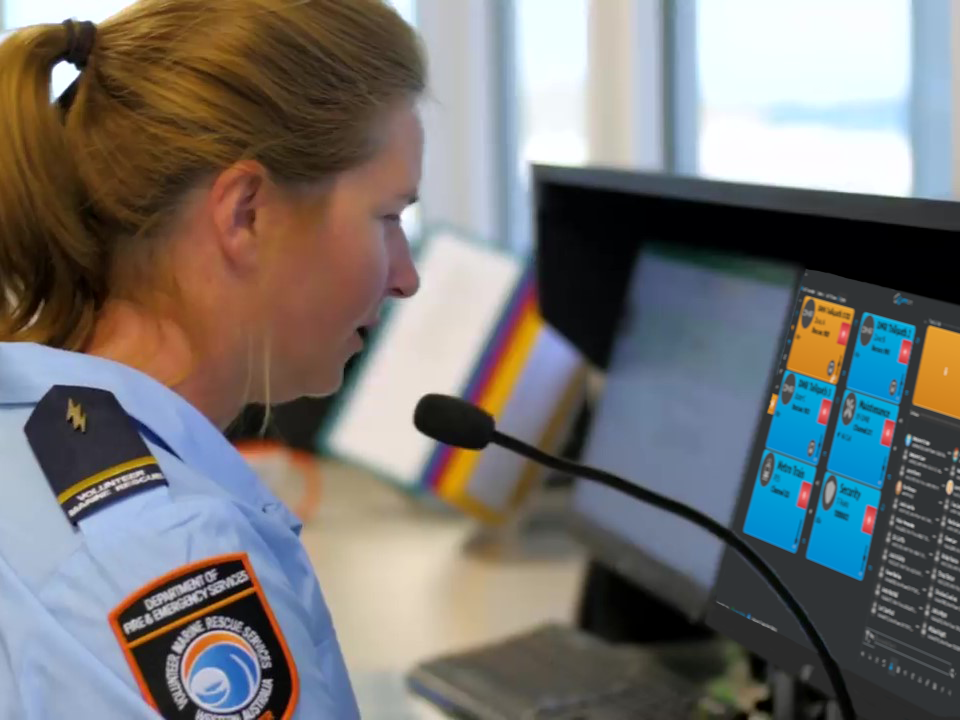Omnitronics has been chosen to supply omnicore Enterprise Dispatch for the marine rescue services in Western Australia
The radio dispatch system has been selected by the Department of Fire and Emergency Services (DFES) for the not-for-profit Marine Rescue service in Western Australia to manage radio communications for 38 individual rescue groups as part of a state-wide marine safety Radio over IP project.
The not-for profit organisation representing 38 member groups with more than 1,400 volunteers, works closely with the Australian Maritime Safety Authority, WA Water Police, and DFES Marine Services to keep mariners along > 20,000km (13,000 miles) of Western Australian coastline safe.
Using a VHF Marine Radio and a network of 38 strategically located marine VHF repeater stations commissioned by both Government and private organisations along the WA Coast, the project connects marine VHF radios to a microphone and a laptop running omnicore Enterprise Dispatch for a user to access those radios.
“The RoIP rollout will result in a much more comprehensive coverage state-wide. This means that distress and urgency calls will be far more likely to be picked up by a marine rescue coast station, resulting in a reduced response time. This will be literally, a life saver! We also feel that boaters will be more likely to log their trips with Marine Rescue if they are confident that there is someone to take their call,” says Ian Beard, Media Officer at Volunteer Marine Rescue WA.
The upgrade comes on the back of feedback from volunteers and the boating public who identified large gaps in radio coverage along the Western Australian Coastline.
Whilst 16 volunteer rescue groups along the coast provide much-needed 24/7 monitoring service to mariners, 7 groups have limited weekend and public holiday-only service, the remaining 15 groups don’t have the volunteer resources to monitor radios at all. In the interest of maritime safety, the organisation aims to provide 24/7/365 monitoring service that covers the entire coastline of Western Australia and surrounding islands including the Indian Ocean Territories, Christmas Island, and the Cocos/Keeling Islands.
Radio over IP technology was selected to increase safety in less populated areas by being able to monitor radio traffic and respond to incidents using available, yet remotely located operators, i.e., in metropolitan Perth.
Additionally, the technology provides volunteers the flexibility to monitor radios from home or other locations in cases when attending the control room is not feasible, simply with a laptop, mic, and an internet connection.

